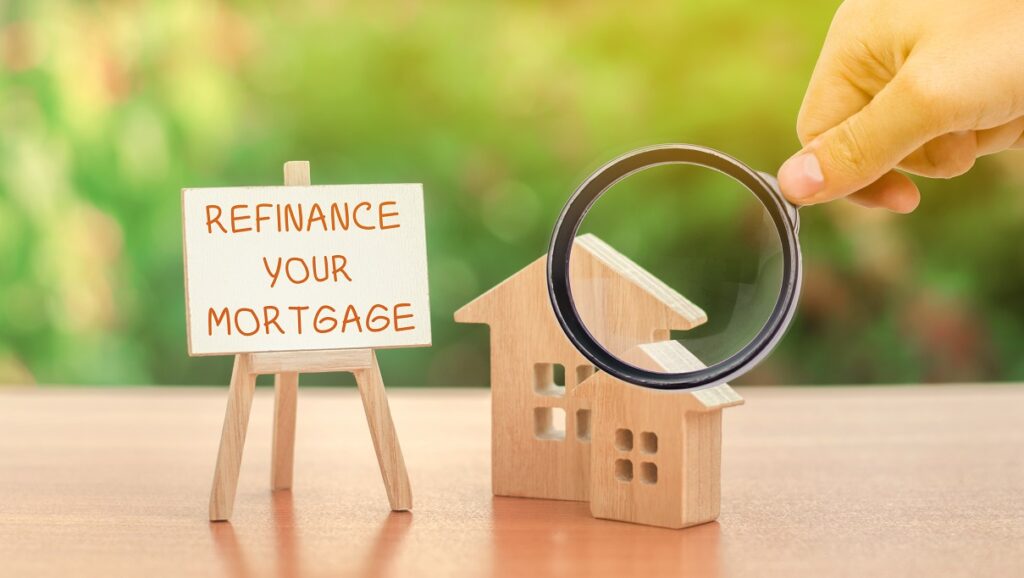Most home venders long for a calm deal where they essentially list their home, immediately track down a certified purchaser, gather the money and hand over the keys. If by some stroke of good luck it were just basic! Truly, selling a home includes many complex components — some that you have some control over, and some that are none of your concern.
For instance, geology could impact how long your home waits available or how high of a rundown value you can pull off. Where contest is hot and stock is low, chances are you'll sell quicker and order a greater cost. Alternately, where home deals have cooled, you will probably need to work harder to draw in the right purchaser.
The housing market has moved altogether since the furious levels of the pandemic. Today, exorbitant costs are joining with exorbitant loan fees to make serious moderateness challenges: The middle cost for a house is up close $400,000, and contract rates as of late hit a 22-year high. It's no big surprise numerous purchasers have barely a choice however to remain uninvolved until one or the other rates or costs (or both) descend.
In this way, as a merchant, it's savvy to be ready and control anything that elements you're ready to. Things like employing an extraordinary realtor and boosting your home's web-based allure can convert into a smoother deal — and more cash in the bank. Here is a nine-step manual for how to effectively sell your home.
1. Set a timeline for selling your home
Selling a house is a significant endeavor that can require a while beginning to end — or significantly longer, contingent upon nearby economic situations. So it's a good idea to prepare and remain coordinated.
No less than a few months before you intend to list, consider getting a pre-deal home investigation. This isn't compulsory yet can be valuable to distinguish any trouble spots, particularly in the event that you suspect difficult issues. Pass on sufficient opportunity to plan vital fixes.
About a month prior to posting your home, begin dealing with profound cleaning in anticipation of taking posting photographs. Downplay mess, and think about moving overabundance things to a capacity unit to show your home in its best light.
2. Hire an agent who knows the market
The web makes it simple to dig into a realtor's expert encounter, assisting you with picking the perfect individual to work with. Look into specialists' web-based profiles to figure out how long they've been in the business, the number of deals that they've shut and what assignments they might have acquired. Focus on how and where they market their postings, and how proficient their postings' photographs look.
"Any assignment they've procured is a colossal furthermore, in light of the fact that it's a sign they've required the investment to find out about a specific specialty," says Jorge Guerra, president and Chief of Land Deals Power and a previous worldwide contact for the Public Relationship of Real estate agents (NAR).
A few property holders may be enticed to save money on paying a commission and on second thought sell their home themselves, without a specialist. This is known as "available to be purchased by proprietor," or FSBO. The sum dealers stand to save money on that charge can be critical, normally 2.5 percent or 3% of the absolute deal cost. On a $400,000 home deal, for instance, 3% comes to $12,000.
3. Determine what to upgrade — and what not t
Before you burn through cash on expensive overhauls, be certain the progressions you cause will to have an exceptional yield on venture. It doesn't seem OK to put in new stone ledges, for instance, assuming you just stand to earn back the original investment on them, or even lose cash. Additionally, these enhancements may not be important to sell your home for as much as possible, especially on the off chance that stock levels are low in your space (which they are in many regions nowadays). A decent realtor will understand what nearby purchasers expect and can assist you with concluding what needs doing and what doesn't.
4. Set a realistic price
Indeed, even in serious business sectors, purchasers would rather not pay more than they need to, so it's essential to get the valuing right. Going too high can misfire, while underrating a home's estimation could overlook cash. To value your home impeccably all along, counsel nearby land comps. This data about as of late sold properties in your local provides you with a thought of what practically identical homes around you are selling for, subsequently assisting you with concluding the amount you could sensibly inquire.
"A successive error merchants make is estimating a home too high and afterward bringing down it occasionally," says Award Lopez, a Real estate professional at Keller Williams Legacy in San Antonio and a Texas Relationship of Real estate agents governing body part. "A few merchants figure this training will yield the best yield. However, as a general rule, the inverse is in many cases valid: Homes that are valued too high will switch off expected purchasers, who may not actually think about checking the property out."
5. List your house with professional photos

This step will probably include your realtor employing a photographic artist and enlisting the posting with the nearby MLS (numerous posting administration). Here are a few hints to prepare your home market:
6. Review and negotiate offers
Whenever purchasers have seen your home, the offers will preferably begin coming in. (Remember, however, that with contract rates as of now so high, the quantity of purchasers who can in any case stand to purchase may be more modest than you'd like.) This is where a realtor is your best backer and go-to hotspot for exhortation. Assuming your nearby market favors dealers, purchasers will probably offer near asking cost, or perhaps even above. Then again, in the event that deals are delayed in your space, you might need to open to arrange.
At the point when you truly do get a proposition, you'll have a couple of decisions: acknowledge it with no guarantees, make a counter-proposition or reject the deal. A counter-offer is a reaction to a proposal wherein you haggle based on conditions or potentially cost. You can offer a credit for new paint and rug, for instance, however demand keeping your unique asking cost set up. Counters ought to constantly be made recorded as a hard copy and give a short time span (in a perfect world 48 hours or less) for the purchaser to answer.
7. Weigh closing costs and tax implications

In any land exchange, the two players should pay a few shutting costs in any event. The merchant ordinarily pays the realtors' bonuses, which typically complete around 5 to 6 percent of the home's deal cost. This can be a major load of cash: For instance, on a $400,000 home, 6% comes to $24,000.
A few other shutting costs normally paid by the vender incorporate exchange expenses and recording charges. Moreover, on the off chance that the purchaser has haggled any credits to be paid at shutting — to cover fixes, for instance — the dealer will pay those, as well. Your realtor or the end specialist ought to give you a total rundown of costs you'll be liable for at the end table.
Fortunately you may not owe the IRS charges on your benefits from the deal. It relies upon whether it was your main living place, how long you resided there and the amount you make on the deal. Assuming you've possessed and resided in your home for no less than two out of the past five years prior to selling it, then, at that point, you won't need to pay charges on any benefit up to $250,000. For wedded couples, the sum you can reject from charges increments to $500,000. Assuming that your benefit from the home deal is more noteworthy than that, however, you'll have to report it to the IRS as a capital increase.
8. Consider hiring a real estate attorney
A states really expect dealers to have a land lawyer to finish everything with a house deal, however many don't. No matter what your state's regulations, the cost is worth the effort to safeguard such a huge monetary exchange. It might cost two or three thousand bucks, yet there's much more cash than that in question, and having a legitimate master give all that the OK is consistently savvy.
Likewise, a lawyer can assist with finishing up administrative work accurately, survey agreements and reports, distinguish expected issues and guarantee the deal goes as flawlessly as could really be expected. A lawyer would likewise have the option to recognize title gives that could hold up your deal for weeks or months — or even torpedo the arrangement —, for example, extraordinary liens or encumbrances, trust issues and infringements.
FAQs
Will house prices drop in 2024 UK?
Property site Zoopla is additionally moderate with its gauge, assessing that house costs will fall by 2% this year. Home specialist Savills predicts that UK property costs will fall by 3% in 2024, preceding recuperating in 2025 and ascending by 3.5%
Should I sell my house now or wait until 2024 UK?

Regardless of the property market starting to give indications of recuperation it actually might merit holding off prior to selling your home. Deals are supposed to fall by 4pc this year, as per domain office Savills, prior to bouncing back in 2024 and remaining comprehensively level until 2027.
Will interest rates go down in 2024?
After the 30-year fixed-rate contract hit 8% last October, it finished 2023 nearer to 7%. The normal for Q4 2023 was 7.3%, as a matter of fact. Investigators with Fannie Mae and the Home loan Investors Affiliation (MBA) both venture that rates will fall going into 2024 and all through the following year.
















